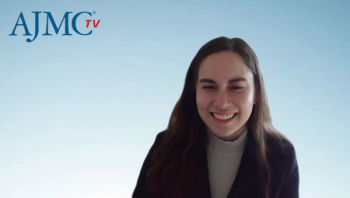
Study Summary: Response and Progression-Free Survival at 18 Months With Lenalidomide and Dexamethasone
Background
Multiple myeloma (MM) is an incurable disease, and patients commonly experience periods of relapse and remission. Relapse is associated with worse outcomes, poor treatment responses, reduced duration of response, and lower health-related quality of life. Despite advances in the treatment of MM, relapse and disease progression are still inevitable for most patients. Data suggest that the use of continuous therapy rather than fixed-dose treatment for both transplant-eligible and transplant-ineligible patients offers potential advantages in terms of controlling minimal residual disease and delaying disease recurrence.1
Carfilzomib, a selective and irreversible proteasome inhibitor, has shown robust activity in patients with MM, both as monotherapy and in combination with other anti-myeloma agents.1 The phase 3 ASPIRE study enrolled patients with relapsed MM and assessed the efficacy and safety of carfilzomib, lenalidomide, and dexamethasone (KRd) compared with lenalidomide and dexamethasone (Rd).2 Patients in ASPIRE had previously received 1 to 3 prior lines of therapy; the results of this trial showed that response rates, progression-free survival (PFS), and overall survival (OS) were improved with KRd versus Rd. According to protocol, patients received KRd for a maximum of 18 cycles, followed by Rd until progression. To evaluate the safety and efficacy of KRd versus Rd at 18 months post randomization (the latest time that allowed a direct comparison of results), a post hoc analysis of data from ASPIRE was conducted.1
Study Design
In ASPIRE, patients were randomized 1:1 to receive KRd or Rd in 28-day cycles; treatment was terminated upon withdrawal of consent, disease progression, or unacceptable toxicity. Carfilzomib was administered via intravenous infusion on days 1, 2, 8, 9, 15, and 16 of cycles 1 to 12 and on days 1, 2, 15, and 16 of cycles 13 to 18. Carfilzomib was dosed at 20 mg/m2 on days 1 and 2 of cycle 1, and dosed as 27 mg/m2 subsequently. Lenalidomide was given on days 1 to 21 at a dose of 25 mg; dexamethasone was given on days 1, 8, 15, and 22 at a dose of 40 mg. After cycle 18, carfilzomib was discontinued. All patients in the KRd group then received Rd until disease progression.
The primary objective of the study was PFS; OS, overall response rate (partial response or better), and safety were the secondary endpoints. This post hoc analysis evaluated PFS and the proportion of patients who achieved at least a complete response (CR) at 18 months for KRd versus Rd.1
ResultsBaseline Characteristics
In the intent-to-treat population, patient demographics and disease characteristics (including cytogenetic risk, baseline neuropathy, number of prior treatment regimens, and prior therapies) were balanced between treatment groups at baseline.1
Efficacy Results
Primary ASPIRE Study
The overall hazard ratio (HR) for PFS (KRd vs Rd) was 0.69. CR or better was achieved by 32% of patients in the KRd arm versus 9% of patients in the Rd arm. The median time from treatment start to CR or better was 6.7 months for KRd and 8.3 months for Rd. Improved PFS was observed in patients who achieved at least a CR versus those who achieved less than a CR.1
18 Months From Randomization
The HR for PFS was 0.58, favoring the KRd group. The results for PFS also favored KRd in the following subgroups: high-risk cytogenetics, standard cytogenetic risk, 1 prior line of treatment, ≥2 prior lines of treatment, and prior bortezomib exposure. Subgroup HRs were numerically lower compared with subgroup HRs from the primary ASPIRE study. Overall, 28.6% of patients who received KRd achieved at least a CR compared with 7.7% of patients who received Rd.1
Safety Results
At 18 months post randomization, there were 781 patients in the safety population (KRd, n = 392; Rd, n = 389). The median treatment duration was 78 weeks in the KRd group versus 57 weeks in the Rd group. Overall 96.7% of patients treated with KRd and 95.6% of patients treated with Rd experienced any-grade adverse events (AEs). Any-grade AEs of interest occurring in ≥15% of patients in the KRd and Rd groups included anemia (40.1% vs 37.8%), thrombocytopenia (27.3% vs 21.6%), neutropenia (34.9% vs 32.4%), dyspnea (20.9% vs 17.2%), and peripheral neuropathy (15.1% vs 14.1%). Grade ≥3 AEs were reported in 80.4% of patients in the KRd group and 75.3% of patients in the Rd group. Grade ≥3 AEs of interest in the KRd and Rd groups included anemia (17.6% vs 16.7%), thrombocytopenia (16.1% vs 12.1%), neutropenia (28.3% vs 25.4%), hypertension (4.1% vs 1.3%), dyspnea (2.6% vs 1.5%), peripheral neuropathy (2.3% vs 2.3%), cardiac failure (3.6% vs 1.3%), and acute renal failure (2.3% vs 3.1%).1
Disease progression, which was the most commonly reported reason for treatment discontinuation, was reported in 36.2% of patients in the Rd group and in 20.9% of patients in the KRd group. Overall 21.2% of KRd-treated patients discontinued any study drug due to AEs; compared with 20.8% of Rd-treated patients. The rate of deaths due to AEs was 6.4% among KRd-treated patients and 7.5% among Rd-treated patients.1
Conclusion
Based on the results of this post hoc analysis of data from the ASPIRE study, KRd provided higher CR rates and improvements in PFS at 18 months compared with Rd, suggesting that continuing carfilzomib treatment may be associated with clinical benefit.1
References
1. Dimopoulos M, Wang M, Maisnar V, et al. Response and progression-free survival according to planned treatment duration in patients with relapsed multiple myeloma treated with carfilzomib, lenalidomide, and dexamethasone (KRd) versus lenalidomide and dexamethasone (Rd) in the phase III ASPIRE study. J Hematol Oncol. 2018;11(1):49. doi: 10.1186/s13045-018-0583-7.
2. Stewart AK, Rajkumar SV, Dimopoulos MA, et al; ASPIRE Investigators. Carfilzomib, lenalidomide, and dexamethasone for relapsed multiple myeloma. N Engl J Med. 2015;372(2):142-152. doi: 10.1056/NEJMoa1411321.
Newsletter
Stay ahead of policy, cost, and value—subscribe to AJMC for expert insights at the intersection of clinical care and health economics.








